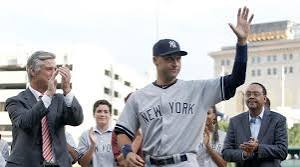On Saturday, during a highly competitive matchup between the Georgia Bulldogs and Mississippi State, head coach Kirby Smart found himself at the center of controversy after a sideline incident involving Mississippi State quarterback Michael Van Buren. The Bulldogs ultimately secured a 41-31 victory, but the post-game narrative shifted significantly due to a moment that many viewed as troubling.
In the fourth quarter, after Van Buren scrambled for a six-yard gain and headed out of bounds, Smart, in an apparent attempt to communicate with his defensive coordinator Glenn Schumann, inadvertently collided with the quarterback. The moment was captured live on television, and viewers immediately began to express their concerns, leading to widespread criticism of Smart’s actions.
Smart later addressed the incident, stating, “No, I think I was going after Schumann. I was trying to get Schumann’s attention. We were trying to change personnel. I think it’s the play they came over to our sideline. And I’m trying to get Schumann’s attention. But, no, I don’t really remember it.” His explanation suggests that his focus was entirely on the game, and the collision was unintentional. However, the optics of the situation were alarming to many.
Critics argued that regardless of Smart’s intentions, his actions could be interpreted as an inappropriate display of aggression towards an opposing player. Given the intensity of college football, where emotions often run high and tensions can escalate quickly, any perceived act of aggression can lead to significant backlash. While Smart’s intent may have been to manage his team effectively, the visual impact of the incident led some to question his conduct on the sidelines.
The lack of a penalty for the incident is noteworthy, as officials were present and quick to step in, seemingly deeming the occurrence as incidental. This decision has sparked debate among fans and analysts about the criteria for penalties in such situations. In a sport where player safety is increasingly emphasized, many felt that a stronger response was warranted from officials, especially in light of growing concerns about player welfare and the responsibilities of coaches.
Reactions to the incident varied widely. Supporters of Smart pointed out that in the heat of competition, such accidents can happen. They argued that coaches are often hyper-focused on their teams and the strategic elements of the game, which can sometimes lead to unintended collisions. This perspective emphasizes the chaotic nature of college football and the myriad of factors that contribute to on-field incidents.
Conversely, opponents of Smart’s actions argued that a coach, particularly one of his stature, should maintain a higher standard of conduct, especially when dealing with student-athletes. They highlighted that coaches are role models and that their behavior sets the tone for how players interact on and off the field. The incident, in this context, is seen as an opportunity for a larger discussion about sportsmanship and respect in athletics.
As Smart navigates the aftermath of this incident, he will likely face continued scrutiny. The narrative surrounding him may shift from that of a successful coach leading a top-tier program to one that questions the behavior exhibited on the sidelines. This type of scrutiny can affect a coach’s reputation and the perception of his program, particularly in the context of broader issues surrounding player safety and respect in sports.
Moving forward, it will be crucial for Smart and his coaching staff to ensure that the focus remains on the game and the development of their players. They will need to address any potential fallout from this incident and reinforce a culture of respect and professionalism within their program. Maintaining a positive sideline environment not only reflects well on the coaching staff but also fosters a healthy competitive atmosphere for players.
while the incident involving Kirby Smart and Michael Van Buren was accidental, it serves as a reminder of the responsibilities coaches bear in the realm of college athletics. The emphasis on player safety, sportsmanship, and professionalism will continue to be critical topics in discussions about college football. As the season progresses, how Smart handles this situation could have lasting implications for both his career and the culture of the program he leads. The incident may fade from the headlines, but its lessons will likely resonate within the football community for some time to come.






